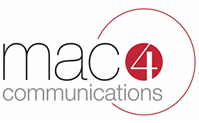
Social media is a powerful, pervasive outlet that drives information on both personal and corporate levels. Platforms like Twitter, Facebook, and Instagram are no longer just for sharing your children’s baby pictures or last night’s dinner. Today, they are sources of personal updates, global and local news as well as political commentary.
In recent weeks, the United States has been flooded with political tweets and links to articles supporting all points of view, which is the beauty of the First Amendment at work. However, outlets like Twitter and Facebook are designed for immediate response for users to share opinions in real time. While fun for sharing a cartoon or funny meme, this power poses a serious risk to companies who do not have a social media strategy.
A corporate leader does not have the luxury to get on Twitter and spew individual opinions without first aligning his or her message to the company’s strategy. One “shoot from the hip” Tweet will go viral in minutes. And today, the message never goes away. That means, damage control for years to come; that one Tweet will come back to haunt your corporate communications team over and over again.
With power comes responsibility, and executives must remember that when facing a keyboard and the overwhelming desire to “just send out this one Tweet,” to step back. Savvy corporations today have social media experts as part of their corporate communications team. These are the people executives need to work with when engaging social media. There is a right way and wrong way to get your message out – and these are the people who will make sure your company is getting the right kind of attention on the Internet.
In terms of social media wins recently, no one nailed it better than Denise Young, Vice President of Corporate affairs at Wm. Wrigley, Jr. Company, the manufacturer of Skittles candy, following a Tweet made by Donald Trump, Jr. comparing refugees to Skittles. “Skittles are candy. Refugees are people. We don’t feel it’s an appropriate analogy. We will respectfully refrain from further commentary as anything we say could be misinterpreted as marketing.”
This is social media strategy at its best: short, simple, respectful and it takes the company out of the fray. The same can be said for Tic Tac’s response to being mentioned in the Trump bus scandal:
“Tic Tac respects all women. We find the recent statements and behavior completely inappropriate and unacceptable.”
You can be sure the corporate communications and social media teams at Wrigley and Tic Tac monitored the situation and recommended the path to take: address the issue, state the company’s position, and remove the company from the fray. In doing so, they solidified their reputations as mature, professional and compassionate corporate entities.
Corporate communications professionals are needed and valuable allies in facing the barrage of information sources available today. Work with them to reinforce your corporate message and keep your reputation as a company impeccable. And remember: Think before you Tweet.
Author: Robin Imbesi

